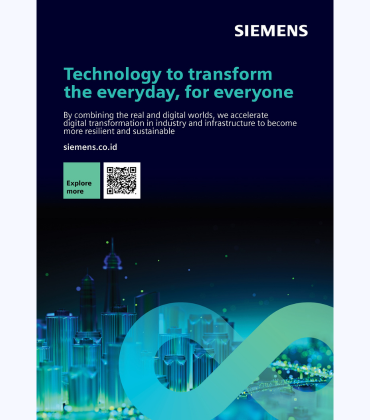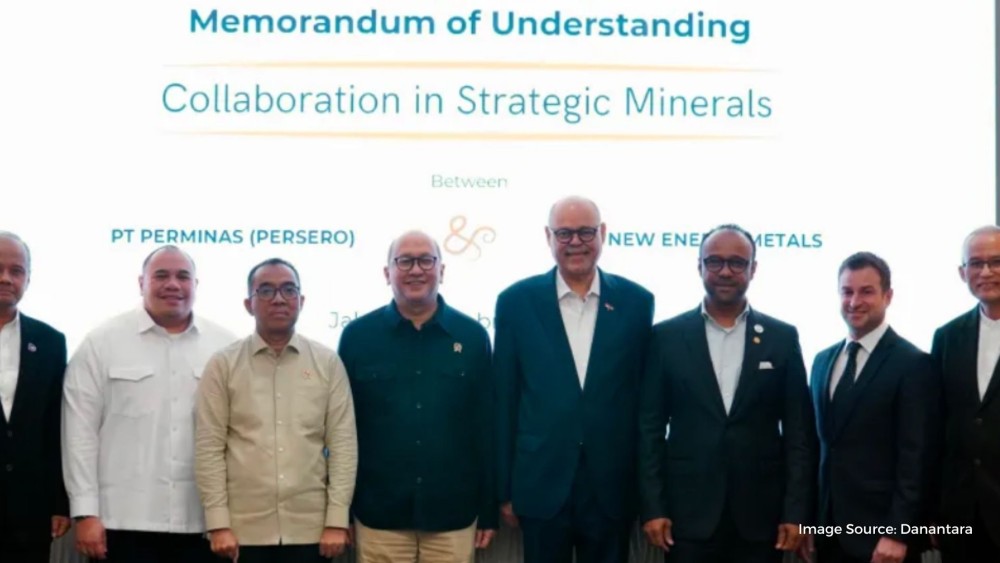This Week’s Headlines Sep. 21 – Sep. 27 (Issue #131)
27 Sep 2024

RI has made official request to join CPTPP: Airlangga
Incumbent President Joko “Jokowi” Widodo ordered the ministers to immediately join the CPTPP, he said, adding that president-elect Prabowo Subianto shared the same objective.
Indonesia has made an official request to join the Comprehensive and Progressive Agreement for Trans-Pacific Partnership (CPTPP), Coordinating Economic Minister Airlangga Hartarto said on Monday.
Incumbent President Joko “Jokowi” Widodo ordered the ministers to immediately join the CPTPP, he said, adding that president-elect Prabowo Subianto shared the same objective.
“Yesterday, the [incumbent] president asked us to immediately join the CPTPP. So, yesterday I talked about the CPTPP to the president-elect, Pak Prabowo, and [he] asked [us] not to wait around,” he said in Jakarta on Monday, adding that an official request has been submitted to New Zealand as the pact’s depositary.
The CPTPP is a trade agreement between New Zealand, Australia, Brunei Darussalam, Canada, Chile, Japan, Malaysia, Mexico, Peru, Singapore and Vietnam.
The agreement, which entered into force at the end of 2018, covered around 13.4 percent of the world’s gross domestic product, making it one of the largest free trade agreements (FTAs) in the world.
Indonesia has long been reluctant to join the club, once called the Trans-Pacific Partnership (TPP), as the country has been focusing on the Regional Comprehensive Economic Partnership (RCEP). Billed as the world’s largest free trade bloc, the RCEP was formed existence in January last year.
In May, the government said it would apply to join the pact this year.
The CPTPP requires countries to eliminate or significantly reduce tariffs, make strong commitments to opening services and investment markets and has rules around competition, intellectual property rights and protections for foreign companies.
Airlangga stressed that Indonesia “did not wish to lag behind” and the government sought to close the gap with its neighboring countries that are already part of the pact.
“Because [joining the FTA] will open up the British, Canadian, Mexican, Chilean and Peruvian markets,” he explained.
He also conveyed hope that negotiations to join the CPTPP “would not be complicated”.
Bernardino Moningka Vega, the international relations deputy of the Indonesian Chamber of Commerce (Kadin), said on Tuesday that joining the CPTPP would be beneficial for the country’s business landscape.
“The CPTPP is comprehensive, progressive and consistent in terms of baseline regulatory framework, that’s why Kadin strongly supports [Indonesia’s] decision to join the CPTPP,” he said in an interview broadcast on CNBC Indonesia.
He expected the agreement to provide an excellent opportunity for Indonesia to explore partnerships with countries it has not yet signed an FTA with, such as Chile, Mexico and Peru.
“These are the markets that we must pay attention to, especially as export destinations for downstream manufacturing products, like electric vehicles,” he said.
This May, the United Kingdom conveyed its support for Indonesia to join the pact and it would help the archipelago during the ascension process.
Source: The Jakarta Post
EU deforestation rule stalling IEU-CEPA, says Indonesian official
The Indonesia-European Union Comprehensive Economic Partnership Agreement (IEU-CEPA) continues to face significant hurdles, with the European Union's Deforestation Regulation (EUDR) emerging as a major stumbling block, an official said on Wednesday.
Djatmiko Bris Witjaksono, Director General of International Trade Negotiations at the Ministry of Trade, highlighted the ongoing policy disagreements that have prevented the two parties from reaching a consensus.
"We're still searching for a mutually agreeable middle ground on several policy matters," he stated.
The EUDR, designed to combat deforestation, poses a particular challenge for Indonesia. The regulation's potential impact on agricultural exports, especially palm oil, has raised concerns within the Indonesian government.
While progress has been made on issues such as tariff reduction, trade facilitation, investment, and transparency, policy-related hurdles—especially those stemming from the EUDR—have significantly delayed the negotiation process.
Despite 19 rounds of talks over nine years, the previously set September 2024 target for IEU-CEPA completion is likely unattainable, Witjaksono said.
The EU deforestation rule's impact on the Indonesia-EU trade deal underscores the complexities and challenges involved in negotiating such comprehensive agreements.
Meanwhile, Coordinating Minister for Economic Affairs Airlangga Hartarto emphasized that the EU should refrain from constantly changing its standards or benchmarks.
He also attributed the incomplete IEU-CEPA negotiations to the recent cabinet reshuffle within the EU.
Source: Antaranews
Indonesia launches $941 mln smelter-grade alumina refinery
Indonesia's President Joko Widodo launched a $941 million smelter-grade alumina refinery run by state miner Aneka Tambang (Antam) and state-owned aluminium producer Inalum in the country's West Kalimantan province on Tuesday.
The production capacity of the refinery is 1 million metric tons of alumina per year, which would absorb 3.3 million tons input of bauxite.
Resource-rich Indonesia is keen to develop its domestic mineral processing industries instead of exporting raw ores. It has successfully attracted massive investment for nickel processing plants since it banned exports of unprocessed nickel in January 2020.
Indonesia banned the export of bauxite, the raw material for aluminium, last year in hopes of emulating the success in nickel.
"The domestic aluminium demand is 1.2 million tons, 56% is imported while we have the raw material. When these are all completed, we can stop the import," Jokowi, as the president is commonly known, said in his remarks.
The companies are planning to expand the plant's production capacity by another 1 million tons and build an aluminium plant to further process the alumina output, according to Hendi Prio Santoso, chief executive of MIND ID, the parent company of both Inalum and Antam.
The second phase of the alumina plant may cost around another $900 million in investment, while the future aluminium plant is estimated to cost $2 billion, Hendi added.
Source: Reuters
















